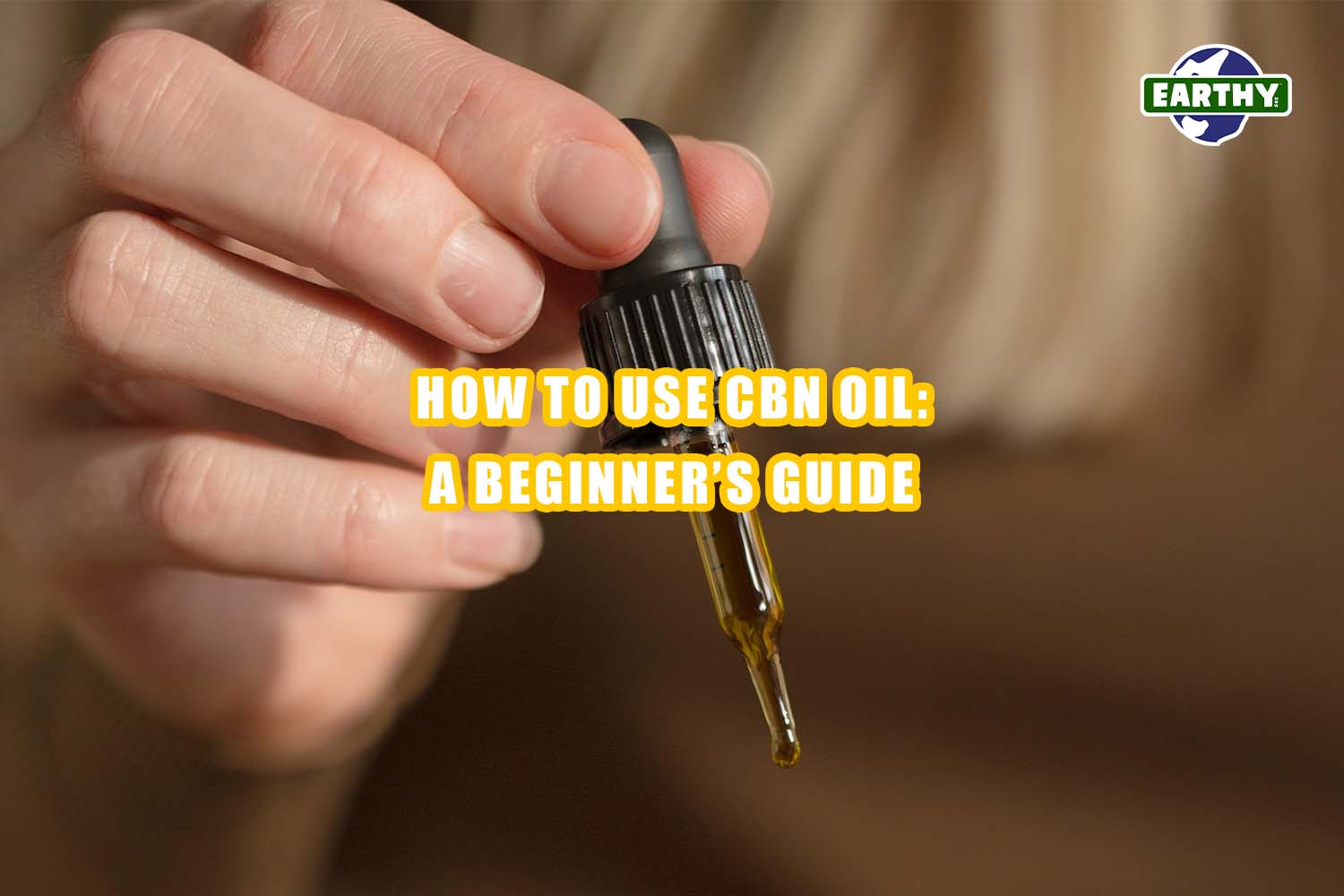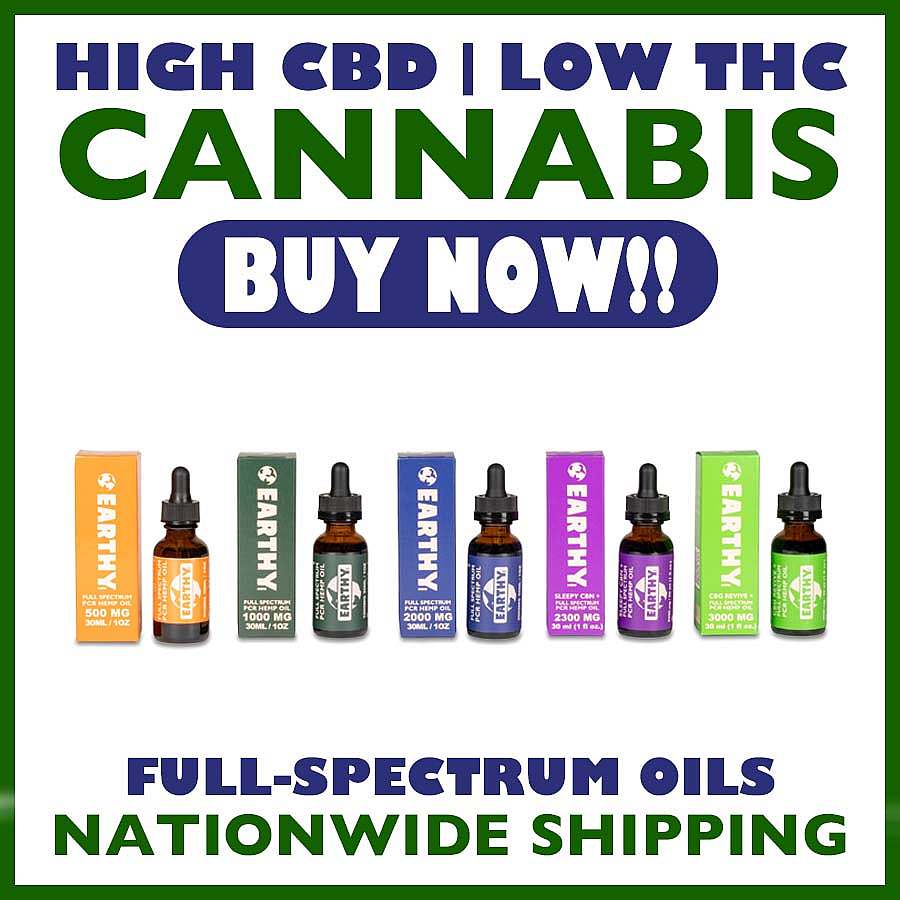While perusing the new wave of cannabis and hemp products, you may have noticed CBN oil. Cannabinol (CBN) oil shows promise for those looking for something different than other cannabinoids.
Consumers don’t get high when they take CBN oil, though it may have mood-altering qualities. CBN oil has been widely used to encourage relaxation. Even so, the scientific jury is still out regarding these outcomes as well as other potential health benefits of CBN. Nonetheless, knowing how to best take CBN oil will help you get the most out of the product.
Read on to find tips and helpful hints about using CBN oil.
What is CBN?
One of the many cannabinoids in the cannabis plant, CBN has recently garnered a loyal following among cannabis enthusiasts. Though not yet as studied or as well-known as CBD or THC, CBN offers its own host of attractions.
CBN forms naturally when THC breaks down due to heat, air, or light exposure. This is why CBN is often found in cannabis that has been aged and stored for a period of time. CBN binds more often to the CB2 cannabinoid receptors than with CB1 receptors.
These two well characterized cannabinoid receptors seem to have distinct physiological properties, whereby CB2 deals more with psychoactive properties and CB1 more with other responses [1]. Notably, CBN doesn’t cause the intense intoxicating psychoactive effects associated with THC [2].
Learn more in the Guide to CBG and CBN
Potential benefits of CBN oil
Though research on CBN is scarce when it comes to human trials, some preclinical studies suggest CBN may be beneficial in several ways.
For instance, a recent animal study encouraged researchers that CBN may have usefulness for humans, yet clinical studies have yet to test this theory [2].
Additionally, anecdotal reports indicate that CBN may encourage rest, but further research is needed to determine if this may be caused by the CBN or other factors.
Nonetheless, CBN may act synergistically with other cannabinoids and terpenes to cause effects related to what is known as the entourage effect [3]. Therefore, the peace-inducing effects that some people claim to experience with CBN may be related to the ways in which the cannabinoid interacts with the other compounds in the cannabis plant, and how they interact with the endocannabinoid system.
What is the endocannabinoid system?
Many of us have heard of chemical transmitter systems like the central nervous system, yet fewer have heard of the more recently discovered endocannabinoid system (ECS). Critical for almost every aspect of our functioning, the ECS has a unique relationship with the cannabis plant [4].
The ECS affects our perceptions by activating a complex network of chemical signals and receptors that exist throughout the human brain and body. These “cannabinoid” receptors (including CB1 and CB2 receptors) are stimulated by cannabinoids: either endocannabinoids (made by our body) or phytocannabinoids (made from plants). Each type influences our bodily functions by turning up or down neural activity and making adjustments. CB1 receptors mediate most of the psychoactive effects of certain cannabinoids, whereas CB2 receptors are principally involved in other responses [5].
In the ECS, our natural receptors get stimulated by its endocannabinoids: the molecules that have a structural similarity to molecules in the cannabis plant. These tiny cannabis-like molecules float through our brains and bodies, affecting our sensations and perceptions.
Likewise, the effects of the cannabis plant occur when cannabis molecules (cannabinoids or phytocannabinoids) attach to our bodies’ ancient cellular machinery and engage with the cannabinoid receptors.
CBD, THC, and CBN are only three of the hundreds of cannabinoids in the cannabis plant that interact with the ECS when they are consumed [4].
How To Use CBN Gummies for Optimal Benefit
Does CBN oil get you high?
THC is the main substance in cannabis that makes people feel high. The effects of CBN are different and milder. It may be mood-altering in a sense, but is not intoxicating.
The strength of the effects of either THC, CBN or other cannabinoids on a particular person will differ depending on a few things: dosage level, body weight, food or other substances in the system, and experience/tolerance level based on individual body chemistry [6].
CBN Gummies Review: What Does CBN Do?
What does “hemp-derived” mean?
“Hemp-derived” means that a given product is made from hemp— sometimes called industrial hemp. The 2018 Farm Bill (see next section) established new federal legal definitions and rules for hemp. In short, the definition includes the hemp plant and “any part of that plant, including the seeds thereof and all derivatives, extracts, cannabinoids, isomers, acids, salts, and salts of isomers, whether growing or not, with a delta-9 tetrahydrocannabinol concentration of not more than 0.3 percent on a dry weight basis” may be used for production, sales, transport, and use.
Hemp plant derivatives include cannabinoids like CBN, CBD, Delta-8 THC, Delta-9 THC, and Delta-10 THC. These and other cannabinoids are federally compliant for use in myriad products—including gummies— when their percentages contain less than 0.3 THC [7].
Is CBN oil federally legal?
For many years in the U.S., cannabis was illegal according to federal law, whether or not it contained Delta-9 THC: the main psychoactive chemical that occurs naturally in the plant. In the 2010s, the United States Congress enacted two groundbreaking pieces of legislation called “Agricultural Acts,” commonly known as the Farm Bills.
These Bills recognized that hemp with very low Delta-9 THC concentration is distinct from higher-THC cannabis. In addition to the hemp plant, hemp extracts and hemp products, including THC isomers, are also allowed by the Farm Bills [7].
Thus, CBN products, including CBN oil, are fully compliant with federal laws.
The Farm Bills and a resurgence of hemp farming
Hemp’s commercial resurgence came after the 2014 Farm Bill removed hemp from the Drug Enforcement Agency (DEA) list of Schedule 1 substances. The Bill made hemp federally legal and allowed long-forbidden research into hemp-derived cannabinoids to begin in earnest.
The 2018 Farm Bill expanded on this, allowing people to produce, sell, and consume hemp-derived products, making it clear to legal experts that all other plant materials and substances derived from legally-defined hemp (including cannabinoids such as CBD and CBN) are also federally-compliant [7].
Since then, federal legislation defines cannabis plants with less than 0.3% of Delta-9 THC per dry weight as hemp plants and allows hemp production and consumption in all 50 states. On the other hand, a plant with more than 0.3% Delta-9 THC per dry weight is defined as marijuana which federal law still treats as a controlled substance on the DEA’s Schedule 1 list.
Nonetheless, many states now allow medical use and/or adult recreational use of marijuana containing much more than 0.3% Delta-9 THC.
Hemp is not a controlled substance
The Farm Bill, drafted by the federal government, uses this definition:
Hemp–The term `hemp’ means the plant Cannabis sativa L. and any part of that plant, including the seeds thereof and all derivatives, extracts, cannabinoids, isomers, acids, salts, and salts of isomers, whether growing or not, with a delta-9 tetrahydrocannabinol concentration of not more than 0.3 percent on a dry weight basis [6].
Most states passed similar laws in the year or years following the Farm Bill’s enactment while adopting similar definitions of hemp. This resulted in the widespread commercialization of hemp products that are not considered controlled substances by the DEA at the federal level.
To learn more, read Guide to CBD
What’s the difference between full-spectrum and broad-spectrum?
You’ve likely heard these terms used in cannabis circles, but what exactly do they mean?
Full-spectrum cannabis products utilize all of the cannabinoids and compounds of the cannabis plant, including up to 0.3% THC per dry weight. The entourage effect is believed to be related to the complete panoply of cannabis compounds working together.
In contrast, broad-spectrum products contain some or all of the same compounds as full-spectrum products, except for the THC [8].
Because of these differences, it may be better to avoid full-spectrum cannabis products if you need to receive a negative drug test result [8].
What is CBN distillate versus isolate?
CBN distillate is a distilled extract that contains high concentrations of CBN. While distillate is purer than a crude extract, it still includes some other cannabinoids, terpenes, and compounds that are naturally present in hemp flowers.
CBD or CBN isolates, in contrast, contain a single particular cannabinoid only, excluding all of the other cannabinoids and compounds [9].
When to consume CBN oil
CBN oil is typically used in the evening or when relaxation is the goal. It can, however, be taken any time of day, and even multiple times per day, depending on personal preferences. Each person’s desired maintenance level is unique to their own system.
If you are unsure what your CBN needs are, most users find success by trying smaller amounts at first and increasing them slowly until they reach their desired effects.
Many people enjoy taking CBN oil before sleep or when they want to relax, even if these effects have not been backed by science as of yet. Still, the interplay among cannabinoids, terpenes, flavonoids and the endocannabinoid system may influence the body in this way. Perhaps through the entourage effect—if the CBN is consumed in full-spectrum or broad-spectrum cannabis products—or through other means we don’t yet understand.
A good rule of thumb for when to consume CBN oil is about 30 to 60 minutes before bedtime, which may encourage a restful night. Adding CBN oil administration to your evening rituals can additionally support the expectation of rest.
Maintaining optimal CBN levels
CBN oil can be taken at the same time (or times) each day to maintain a consistent level of CBN in your body. Again, the amounts and frequency of CBN needed will be different for different individuals.
For example, a person taking CBN for relaxation might begin taking it in the evening, while others who benefit from its effects during waking hours may schedule regular use throughout the day.
Consumption methods and unique effects
CBN can be consumed as a part of cannabis flowers in small amounts, or in products like gummies, lozenges or oils. One easy way to consume CBN is to use CBN oil. Let’s explore the various ways you can consume CBN oil and how these consumption methods affect your experience.
How to consume CBN oil: sublingual and buccal administration
Sublingual and buccal are two methods of administering CBN by mouth.
Sublingual administration involves placing drops under the tongue for 30-60 seconds, where they are then absorbed directly into the bloodstream through the tissue.
Buccal administration involves placing drops between your gums and cheek, where they are absorbed likewise [10].
It’s totally fine to swallow the CBN oil too, but the effect may be different. If you don’t hold the oil under your tongue or between your cheek and gum, more of the CBN oil that is swallowed may be digested before entering the bloodstream, potentially causing a less potent effect [11].
How much CBN oil should I consume?
While products generally have a suggested dose listed on each package, the strength of the CBN effects on a particular person will differ depending on a few things: the dosage level, body weight, food or other substances in the system, and personal body chemistry. Generally speaking, it is recommended that you start with the lowest dose and gradually increase it until you reach satisfactory results.
Newer users can easily have a lighter dose by taking half or a quarter as much as the recommended dosage. More experienced users can take more for stronger results. Personal preference is the key.
The bottom line
CBN is becoming ever more popular as folks continue to explore its benefits to the body and mind via the endocannabinoid system. CBN is an exciting cannabinoid prospect that is already performing strongly and has massive potential for human benefits.
If you want to give CBN a try, always buy CBN products from a reputable company like Earthy Now that provides a certificate of analysis (COA) for each and every product.
—
Medical Disclaimer / Legal Disclaimer – Information is provided for educational purposes. It is not intended to diagnose, treat, or cure any condition and is not intended to constitute legal advice or medical advice. We attempt to be accurate and up-to-date, but the legality of cannabinoids and the science of cannabis are evolving. The author is neither a legal professional nor a medical expert. Before buying or using any products, you should seek a doctor’s advice and check with your local authorities.
References
- Wikipedia: Cannabinol
- Forbes: What is CBN?
- Wikipedia: Entourage Effect
- Harvard: The Endocannabinoid System: Essential and Mysterious
- CB1 and CB2 Cannabinoid Receptors in the Brain
- CBD and CBN: What’s the Difference?
- HIA Position Statement on Delta-8 and Hemp Cannabinoids
- Full-Spectrum vs Broad-Spectrum CBD FAQs
- CBN Comparison: Distillate vs Isolate
- Heathline: Sublingual and Buccal Medication Administration
- The Long and Short of CBD Oil Under the Tongue





